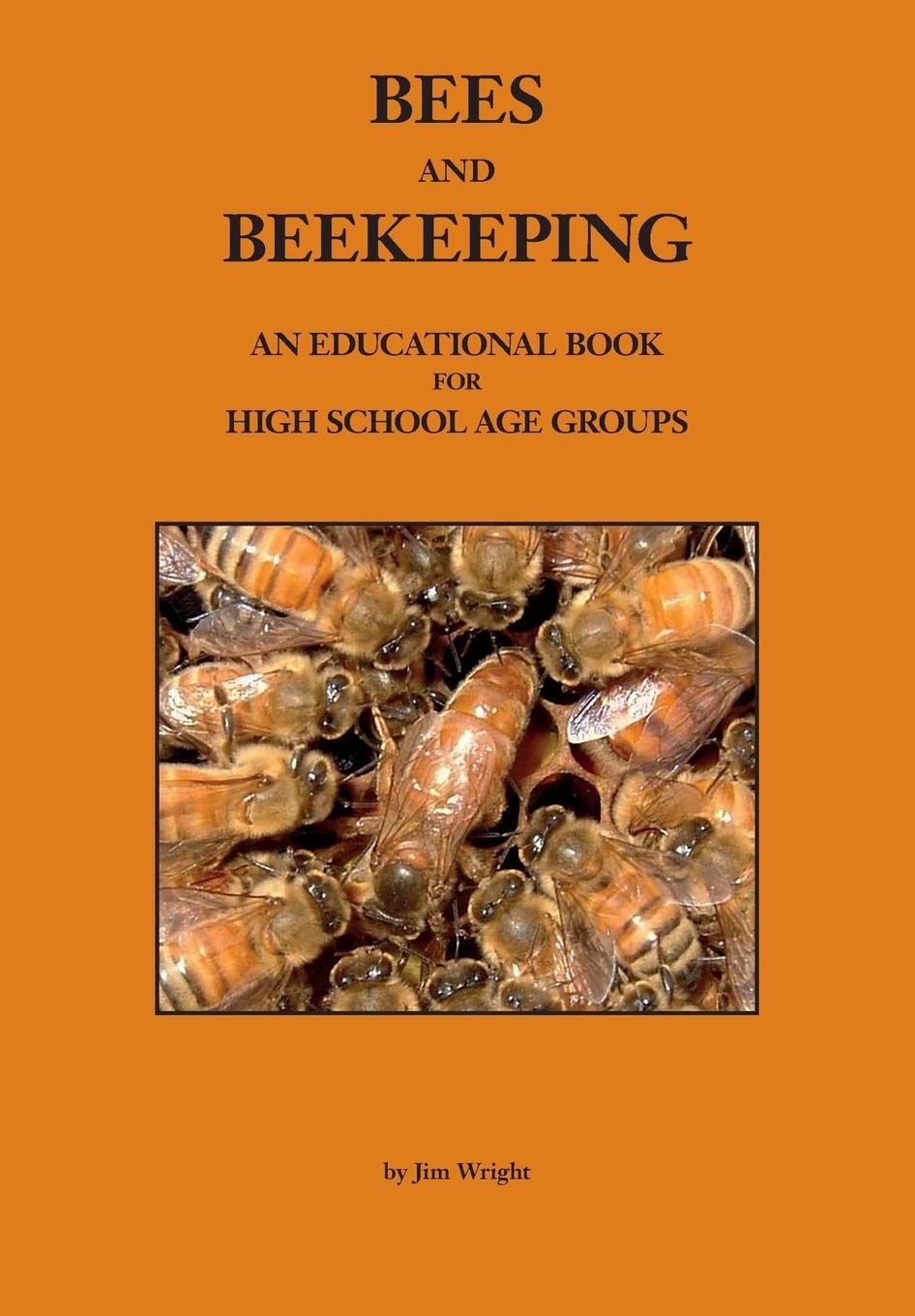Bees and Beekeeping: an Educational Book
Bees and Beekeeping: an Educational Book for High School age Groups by Jim Wright
Is there a need for a book about bees and beekeeping for high school ages? Experience talking to school children of all ages at shows, particularly the Tocal Agricultural College Field Days, suggests that there is. The response of teen agers to a display of live bees and exposure to information about bees and beekeeping varies from keen interest to a shrug with provocative comments such as, “Arrgh, honey is just bee vomit”, or an aggressive question, “What would you do if I let the bees out ?” Such typical teenage aggressive behaviour may well be just a front hiding a fertile soil for education about these fascinating creatures and their importance to us.
A separate work is directed to young children, and much of this is repeated here, somewhat modified, as a basic introduction.
The focus here turns to the evolution of bees, their place in the animal kingdom and their anatomy and function. With the assumption that these older age groups have a basic understanding of the biology of sexual reproduction, this subject is addressed in some detail.
Emphasis is placed on the irreplaceable role played by insects and bees in our environment and our food sources. Problems of beekeeping, amateur and commercial, are addressed with focus on diseases and pests. The age group targeted by this work has a vital interest in the world-wide threat to bees and this subject is afforded some prominence.
In the hope of inspiring continued interest in this important subject, readers are invited to consider contributing to the health of the environment by promoting bee friendly garden practices and maybe even becoming amateur beekeepers.
The early chapters provide a general introduction to bees, followed by their evolution and place in the animal kingdom, biology and diseases. Chapters are devoted to beekeepers and beekeeping, bee stings, honey, pollination and Australian native bees. Later chapters address matters of general interest.
So why a book when the internet now is the preferred information source, particularly of this age group? It is hoped and assumed that there will always be a need for a book to keep on the shelf and to curl up with in chair or bed.

